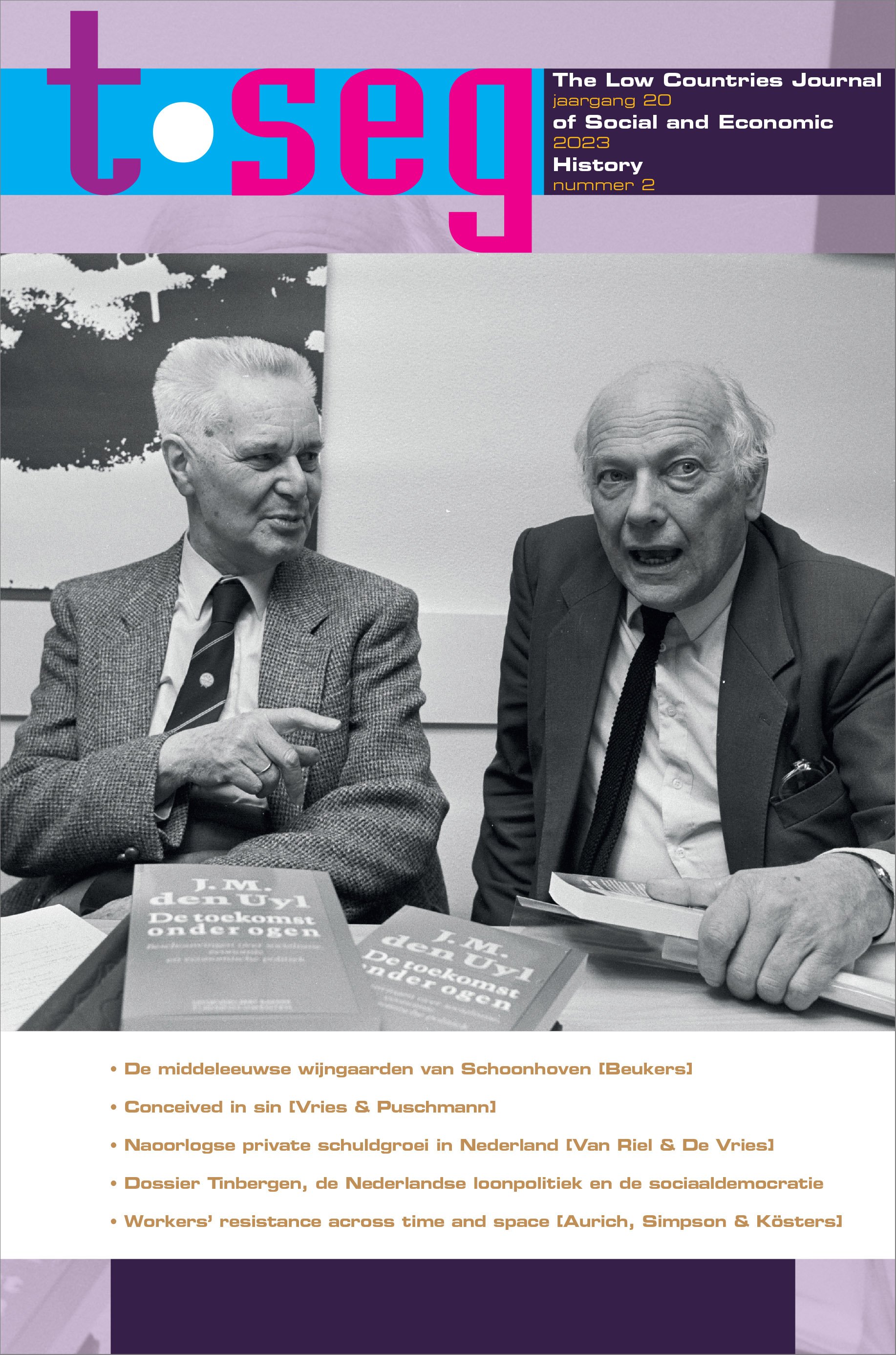De dynamiek van de naoorlogse private schuldgroei in Nederland
DOI:
https://doi.org/10.52024/tseg.14351Keywords:
Schulden, Kredietcrisis, HypotheekschuldAbstract
The dynamics of postwar private debt growth in the Netherlands
The level of private debt in the Netherlands is exceptional in both historical and comparative terms. High debt ratios inhibit economic growth, induce financial fragility and lead to deeper and more tenacious recessions. Facilitated by fiat money creation, private debt in the modern economy mainly consists of bank credit. Internationally shared causes of the rise in bank money are the decline in cash payments, tax deductions and a narrowed focus in monetary policy. In the Dutch case, liberalized mortgages, the side effects of the capital funded pension system and the strong concentration of the banking system add to these. It is the confluence of these factors
that has made Dutch debt growth since the 1970s exceptional. Some of these, notably the deduction of interest on mortgages and financial deregulation, have dominated the debate on this subject and hence are part of public perception. However, this does not apply to other mechanisms identified, such as the role of bank money and that of bank concentration. As a result, policy analysis of the debt problem thus far has been selective. The lessons of Dutch financial development are of importance to the realization of the European banking union and to monetary policy and taxation in the euro area. Our analysis thus demonstrates the usefulness of applied history.
Downloads
Downloads
Published
Issue
Section
License
Copyright (c) 2023 Arthur van Riel, Casper G. de Vries

This work is licensed under a Creative Commons Attribution 4.0 International License.






